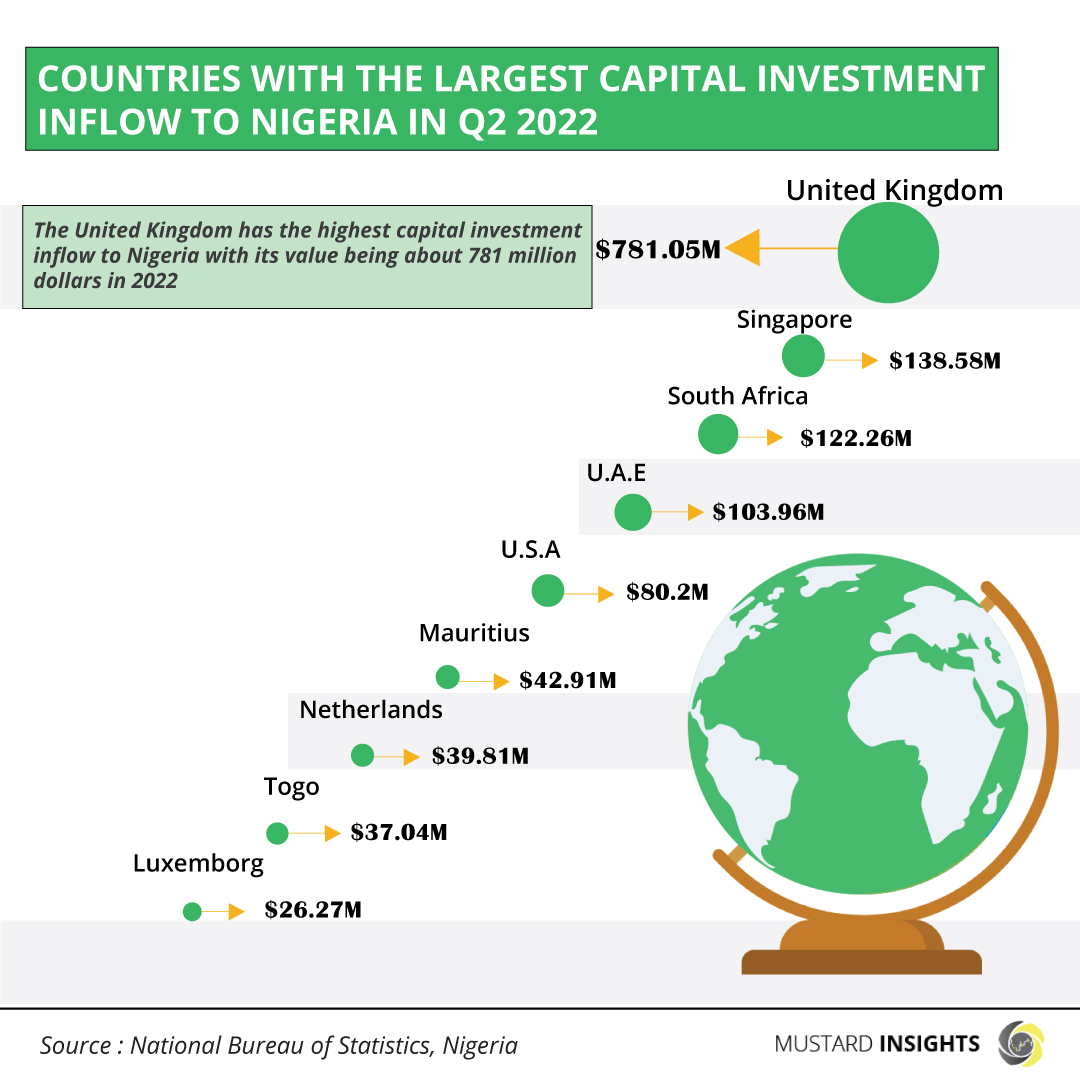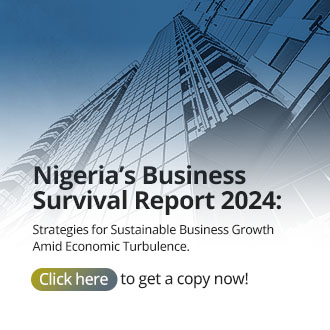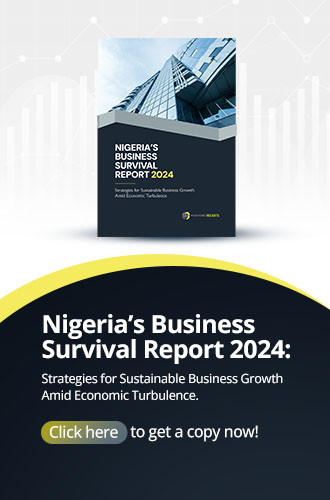The United Kingdom, South Africa, and the United States of America are a few of the countries with significant levels of capital importation into Nigeria

The United Kingdom, South Africa, and the United States of America are a few of the countries with significant levels of capital importation into Nigeria, while Lagos State and the Federal Capital Territory remain the largest recipients.
Capital importation refers to the inflow of foreign direct capital for the purpose of investment, trade, or business operations. Inside of a firm, these include the flow of funds in the form of investment capital, capital spending on operations, and research and development (Investopedia).
In a report released by the National Bureau of Statistics, foreign capital inflows into the Nigerian economy in the second quarter (Q2) of 2022, increased to US$1.535 billion (N632. 8bn) from US$875 million in the second quarter of 2021.
Breakdown & Key Metrics
After a detailed review of the report, it was determined that there was a decrease of 2.40%, when compared to the US$1,573.14 million recorded in the first quarter (Q1) of 2022. However, despite the decline from Q1, Nigeria did record a year-on-year capital inflow increase of 75.34% when compared to the corresponding period from 2021, signifying growth.
The report also showed that the largest amount of capital inflow was received through portfolio investment: direct purchase of ownership of a stock, bond, or other financial asset, done with the expectation that it will earn a return or grow in value over time. This accounted for 49.33% of all capital importation in the time period (US$757.32 million). This was followed by other forms of investment such as trade credits, loans, and currency deposits, with 41.09% (US$630.87 million). Foreign Direct Investment (FDI) accounted for 9.58% (US$147.16 million) of all capital imported in Q2 2022.
Five countries were significant contributors to capital investment inflows to Nigeria. The United Kingdom was by far the largest source, to the tune of US$781.05 million. This is a decline from Q1 but still significantly ahead of any other country. Singapore ranked second with investments of US$138.58 million, with South Africa, the United Arab Emirates, and the United States of America following with investments of US$122.26 million, US$103.96 million, and US$80.2 million respectively.
Lagos state remained the top destination of foreign capital in Q2 2022, with its received investment of US$1,054.18 million accounting for 68.66% of total capital investment into Nigeria. This was followed by investment into Abuja (FCT), valued at US$453.95 million (29.57%). Anambra received US$24.71 million in investments, with Kogi’s US$2million and Ekiti’s US$0.5 making up the rest of the top five.
Cairo ranks as Africa’s top business city
Thoughts?
We won't share your email address. All fields are required.
